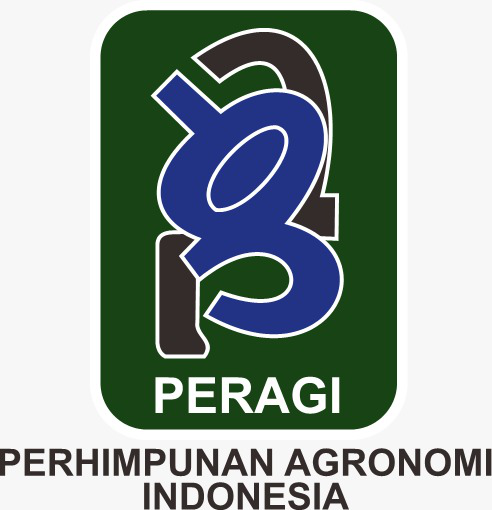Soil Chemical properties and Growth of Agarwood as an Intercropping in Palm Oil Land Plantations that Applied EFBPO Compost and Biochar
Sifat Kimia Ultisol dan Pertumbuhan Gaharu sebagai Intercropping di Lahan Kelapa Sawit yang Diaplikasikan Kompos dan Biochar TKKS
Abstract
The aim of this research was to studied the nature of soil chemistry and growth of agarwood (Aquilaria malaccensis) as an intercropping plant in palm oil land plantations that applied EFBPO compost and biochar. The study was conducted in Bukit Kemuning from May 2018 to December 2019. This study used randomized block design. The treatment is applied EFBPO compost and biochar with 7 levels, namely : without EFBPO compost and biochar, gived 0.5 kg EFBPO compost per a plant, gived 0.5 kg EFBPO biochar per a plant, mixed at dose 0.25 kg EFBPO compost and 0.25 kg EFBPO biochar per a plant, gived 1 kg EFBPO compost per a plant, gived 1 kg EFBPO biochar per a plant, mixed at dose 0.5 kg EFBPO compost and 0.5 kg EFBPO biochar per a plant. Each treetment was repeated 3 times. The observed parameters were soil chemical properties, chlorophyll content, plant height, number of branches, diameter of the stem and leaf area. The results showed that the provision of EFBPO compost or biochar at dose of 0.5 kg or 1 kg per a plant and mixed both at a dose of 0.25 kg and 0.25 kg or 0.5 kg and 0.5 kg per a plant to increase Organic C, P total, K total, KTK and decrease Al dd each 61.83%-102%, 17.18%, 28.04%-64.09%, 23.98% and 14.29%-57.14% compared to control. It also increases plant growth, such as increases plant height, number of branches, diameter of the stem, and leaf area, each 0.67%-56.72%, 5.50%-22.17%, 7.69%-52.88% and 5.73%-125% compared to control.
Downloads
Authors who publish with Jurnal Agronomi Tanaman Tropika (JUATIKA) agree to the following terms:
Authors retain copyright and grant the Jurnal Agronomi Tanaman Tropika (JUATIKA) right of first publication with the work simultaneously licensed under a Creative Commons Attribution License (CC BY 4.0) that allows others to share (copy and redistribute the material in any medium or format) and adapt (remix, transform, and build upon the material for any purpose, even commercially) with an acknowledgment of the work's authorship and initial publication in Jurnal Agronomi Tanaman Tropika (JUATIKA).
Authors are able to enter into separate, additional contractual arrangements for the non-exclusive distribution of the journal's published version of the work (e.g., post it to an institutional repository or publish it in a book), with an acknowledgment of its initial publication in Jurnal Agronomi Tanaman Tropika (JUATIKA). Authors are permitted and encouraged to post their work online (e.g., in institutional repositories or on their website) prior to and during the submission process, as it can lead to productive exchanges, as well as earlier and greater citation of published work.







 More Information
More Information



